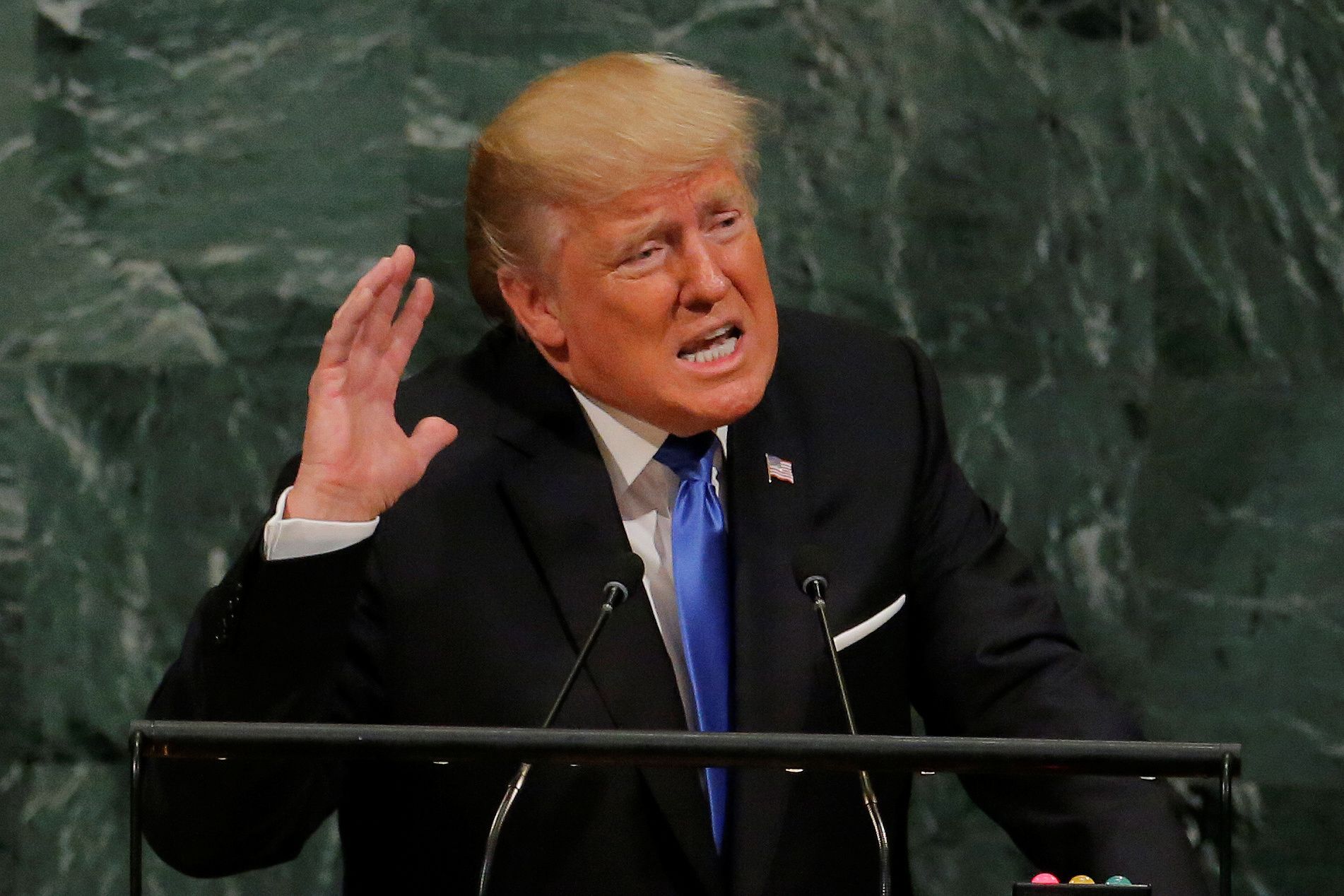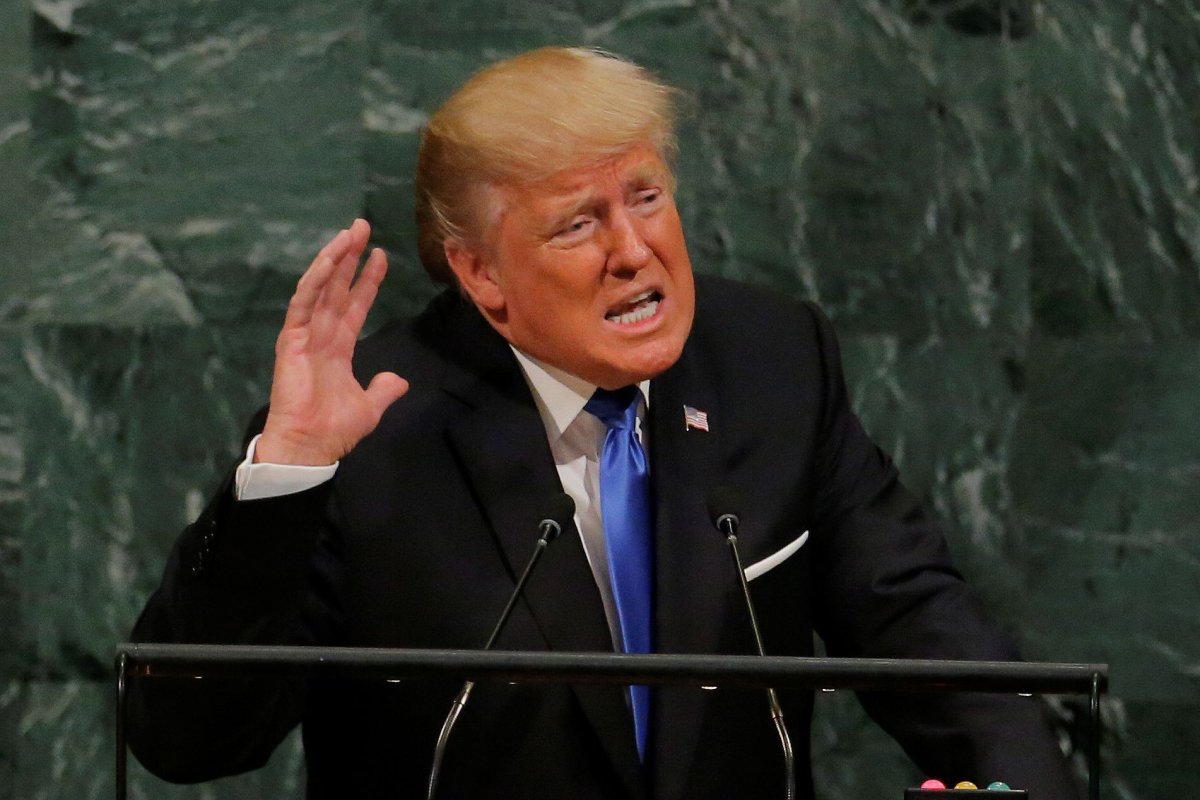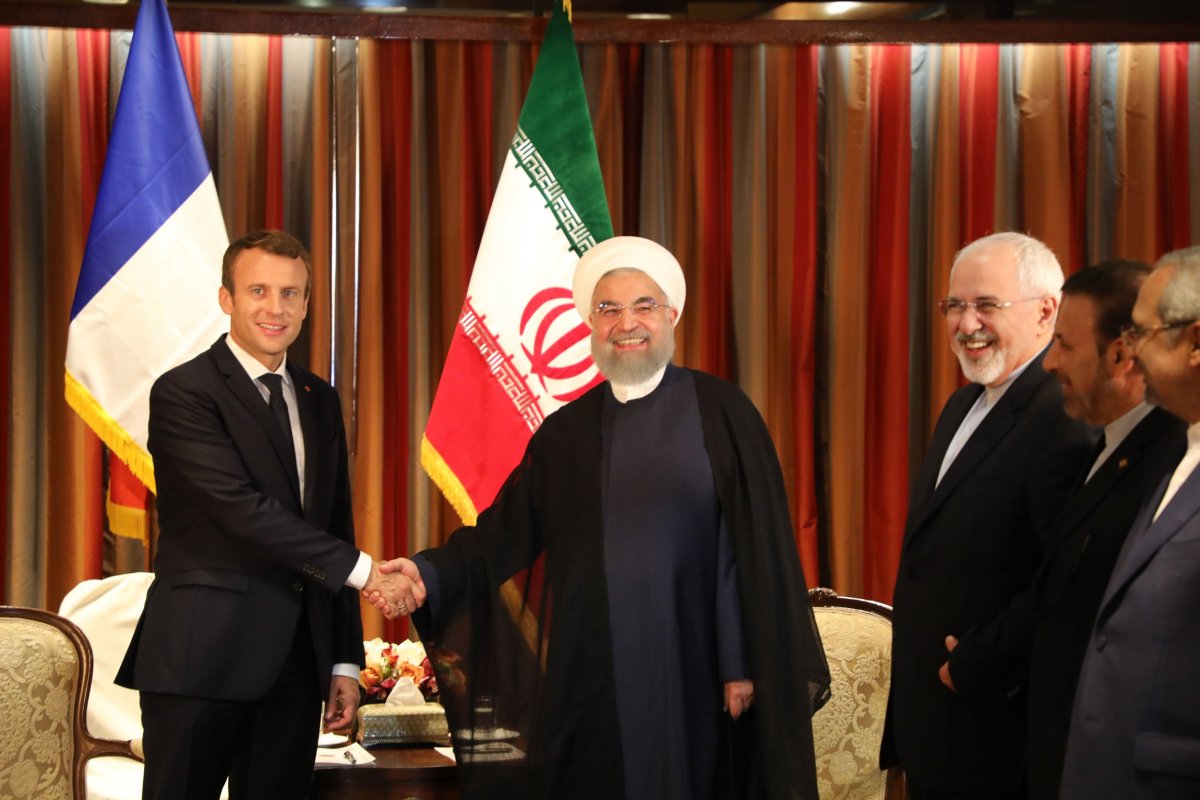
Iran's top diplomat criticized President Donald Trump's "ignorant" first-ever speech at the U.N. General Assembly in New York on Tuesday.
Iranian Foreign Minister Mohammad Javad Zarif took to local and social media to counter Trump's attack on Tehran and the 2015 nuclear treaty negotiated by President Barack Obama, Iran and other leading powers. Zarif, who was deeply involved in negotiations to establish the Joint Comprehensive Plan of Action (JCPOA) nuclear deal, defended Iran against Trump's accusations that it funds terrorism and destabilizes the Gulf region—where it supports various groups opposed to the Islamic State militant group (ISIS) as well as the U.S. presence.
Related: Trump attacks Iran deal at U.N., but offers little in return
"Trump's shameless and ignorant remarks, in which he ignored Iran's fight against terrorism, displays his lack of knowledge and unawareness," Zarif told Iran's semi-official Fars News Agency, according to Reuters.
"Trump's ignorant hate speech belongs in medieval times-not the 21st Century UN-unworthy of a reply. Fake empathy for Iranians fools no one," he added on his official Twitter account.

Zarif wasn't alone in rejecting Trump's remarks. French President Emmanuel Macron warned Trump that alienating the Iran would make more difficult the effort to end Syria's six-year war. Iran, along with Russia, has been a key backer of Syrian President Bashar al-Assad, who has regained much of the territory his government lost to insurgents and jihadists trying to oust him since 2011. As Assad regained momentum throughout the course of the war, Macron became one of a number of Western leaders to abandon efforts to overthrow him, and has welcomed Iran's participation in peace talks.
"If we don't resolve the Syrian problem with Iran around the table, then we will not have an efficient response because Iran today is among the powers that have an influence on the ground," Macron said at a news conference, according to Australia's SBS news service.
"Renouncing [the Iran deal] would be a grave error, not respecting it would be irresponsible, because it is a good accord that is essential to peace at a time where the risk of an infernal conflagration cannot be excluded," he added, according to France 24.
Macron also criticized Trump's vow to exit the landmark Paris Climate Accords.
Meanwhile, when Trump suggested the U.S. may have to "totally destroy" North Korea to resolve their nuclear standoff, Swedish Foreign Minister Margot Wallstrom reportedly crossed her arms, later telling the BBC: "It was the wrong speech, at the wrong time, to the wrong audience," the Associated Press reported.
The North Korean delegation had already walked out.

Trump did find some allies, however. Israeli Prime Minister Benjamin Netanyahu took the opportunity during his own address to praise Trump for not only backing him up in opposition to the JCPOA, but also for being more pro-Israel than President Obama. Netanyahu, who later called the U.N. "the epicenter of global anti-Semitism," tweeted that in his 30 years of experience with the U.N., he had "never heard a bolder or more courageous speech" than Trump's.
The U.K. also reportedly backed Trump's fiery rhetoric toward Iran and North Korea, which he referred to as "rogue regimes." A spokesperson for U.K. Prime Minister Theresa May said London did not seek a war, but would follow Trump's lead.
"As President Trump said, the international community must continue to work together to confront rogue regimes and that is exactly what the Prime Minister will be doing in discussions with world leaders in New York this week," a spokesperson told the London-based Evening Standard.
"No-one wants to see military action, but as we progress with efforts to secure a peaceful diplomatic resolution it would be wrong to rule anything out."
Uncommon Knowledge
Newsweek is committed to challenging conventional wisdom and finding connections in the search for common ground.
Newsweek is committed to challenging conventional wisdom and finding connections in the search for common ground.
About the writer
Based in his hometown of Staten Island, New York City, Tom O'Connor is an award-winning Senior Writer of Foreign Policy ... Read more
To read how Newsweek uses AI as a newsroom tool, Click here.








